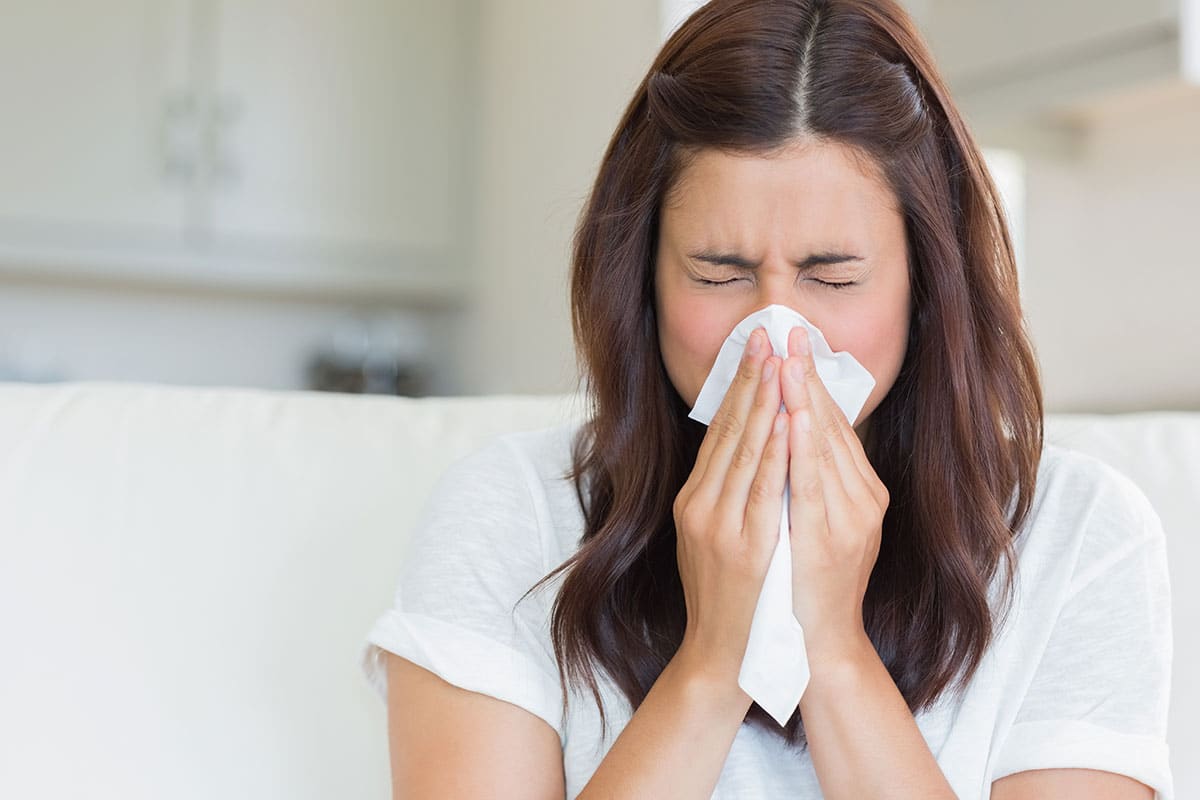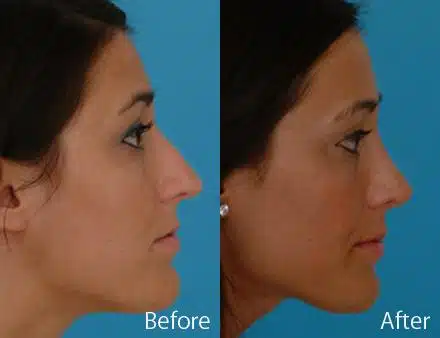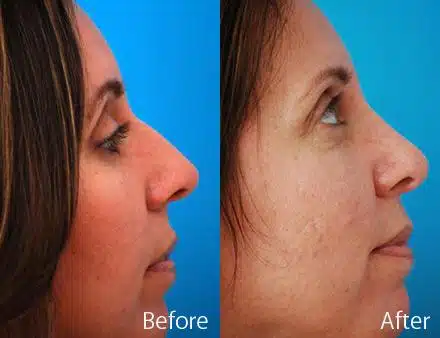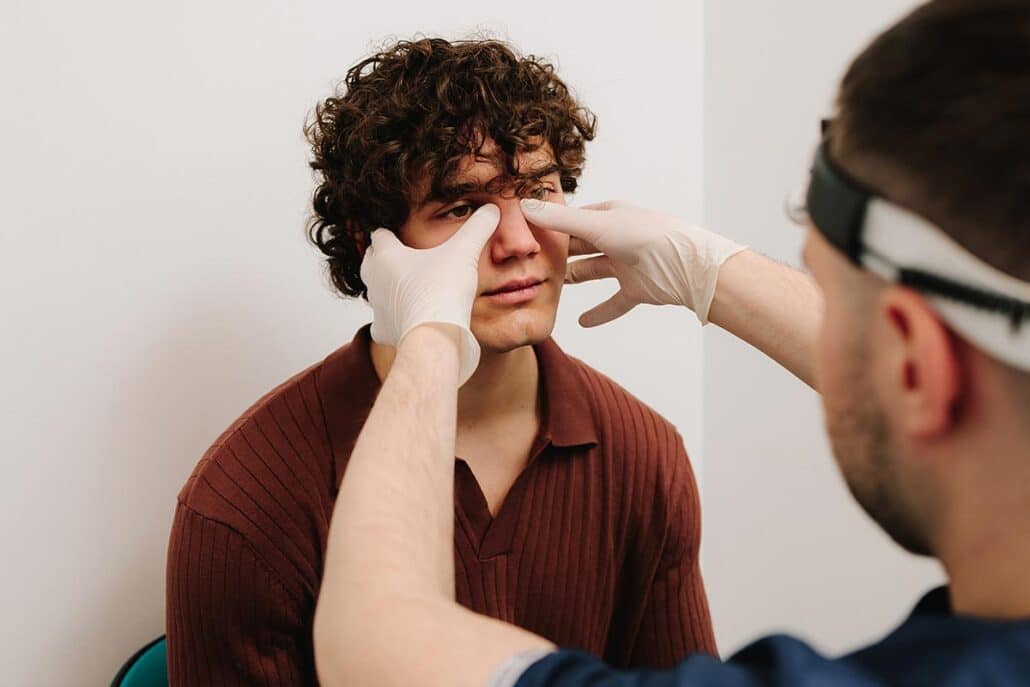Sneezing After Rhinoplasty: How to Safely Manage Your Recovery

Have you ever wondered what happens if you sneeze after a nose job? Rhinoplasty surgery is a life-changing procedure, refining both function and appearance—but recovery is just as important as the surgery itself. Sneezing may seem like a small detail, but it can have surprising consequences.
Knowing how to manage sneezing after your rhinoplasty surgery is crucial for proper healing. Whether you’re naturally sneezy or just want to make sure you don’t risk your results, this article breaks it all down for you. Let’s explore what’s safe, what’s not, and how to best care for your new nose.
Can I Sneeze After Rhinoplasty?
While sneezing after rhinoplasty isn’t forbidden, it’s certainly not recommended—especially in the early stages of healing. For nose surgery patients, the sudden pressure from a forceful sneeze can disrupt internal stitches, stress delicate healing tissues, and cause unnecessary discomfort. The nose after surgery is especially sensitive, and even minor strain can set back recovery. If you must sneeze, always do so with your mouth open. This helps redirect pressure away from the nose and minimizes the risk of complications.
When Can I Sneeze After Rhinoplasty?
During the recovery period after rhinoplasty, even the simplest actions—like sneezing—require extra care. The nose is especially vulnerable in the days after surgery, and applying too much pressure too soon could affect proper healing.
Here’s a general timeline to guide nose surgery patients:
- First week: Avoid sneezing altogether if possible. If you absolutely must sneeze, do so with your mouth wide open to prevent pressure from building in your healing nasal passages.
- 2 weeks after surgery: At this point, your healing tissues are a bit more stable. Sneezing with your mouth open is still advised, but the risk of serious issues is lower than during the first week.
- Several weeks later: As swelling subsides and the nose continues to heal, most patients can return to sneezing normally. However, it’s always best to confirm with your surgeon during follow-up appointments.
How to Avoid Sneezing After Rhinoplasty?
A safe recovery after rhinoplasty depends on following a few simple precautions, especially when it comes to protecting the nasal area. Sneezing might seem harmless, but it can place pressure on your healing nose and potentially affect your surgical outcomes. To promote a smooth and successful recovery, it’s important to minimize sneezing triggers and adopt habits that protect your nose during this delicate phase.
Sneeze with your mouth open
We mentioned this earlier, but it bears repeating—sneezing with your mouth open is one of the most important habits you can adopt during recovery. It might feel unnatural at first, but doing so greatly reduces the pressure exerted on your nasal passages. This simple action helps protect your healing nose from unnecessary strain and supports a smoother recovery.
Keep nasal passages moist
Dry nasal passages are more likely to become irritated, increasing your chances of sneezing during recovery. Using a saline spray or humidifier can help maintain moisture in the nasal tissues, making breathing more comfortable and reducing sneezing triggers. Keeping the nasal lining hydrated also supports gentle healing and minimizes crusting.
Avoid triggering allergies
Allergens like dust, pollen, or pet dander can lead to sneezing and irritation—two things you definitely want to avoid during recovery. Limit your exposure to common allergens by keeping your environment clean, using air purifiers, and staying indoors during high pollen days. By minimizing these triggers, you help reduce the risk of sneezing and protect your nose while it heals.
Gentle nose hygiene
Practicing careful hygiene around your nose can help prevent buildup and blockages that might trigger sneezing. Avoid aggressively blowing your nose or inserting anything into your nostrils while your nasal structures are still healing. Instead, gently dab the area with soft tissue and follow your surgeon’s cleaning instructions to keep things clear without disturbing the healing process.
Secure Your Safe Treatment Experience with Dr. Daniel G. Becker.
Join our satisfied clients who’ve experienced safe, effective treatments.
Other Nose Surgery Recovery Tips
Maintaining your results after a rhinoplasty procedure requires attention not only to sneezing but also to your overall post-operative care routine. The face is highly sensitive after surgery, and extra steps should be taken to promote an optimal healing process. Whether you’re protecting your healing nose or avoiding strain on nasal tissues, these tips will support a smooth rhinoplasty recovery and enhance your final outcomes—especially in combination with other cosmetic procedures.
- Avoid touching your nose: Even gentle pressure can disrupt the healing process. Keep your hands off your face, especially in the early days after surgery.
- Be cautious with glasses: Eyeglass frames can press on the nasal bridge and interfere with healing. If needed, consider using cheek supports or adhesive pads to prevent contact with the surgical site.
- Sleep on your back: Sleeping face-up with your head elevated reduces swelling and prevents accidental pressure on the nose.
- Stay hydrated and eat clean: Good nutrition and hydration play a big part in supporting your body’s ability to heal and resist infection.
- Follow all post-operative care instructions: Your surgeon’s guidelines are designed to ensure a successful recovery—don’t skip or modify them.
- Limit vigorous activity: Intense physical activity can increase blood pressure and the risk of swelling or bleeding in the nasal area. Ease back into your routine gradually.
Nasal Surgery Before and After


*All patients are unique and individual results may vary.
I Accidentally Sneezed After Rhinoplasty. What Now?
As we mentioned earlier, sneezing during rhinoplasty recovery isn’t necessarily a cause for panic—especially if you did it with your mouth open and it’s not happening frequently. This approach helps limit pressure on your healing nose and usually prevents any serious impact.
However, it’s important to stay alert for any signs of complications. If you experience unusual or excessive pain, persistent bleeding, or notice a change in the shape of your nose after sneezing, contact your surgeon immediately. Don’t hesitate to reach out with any questions—it’s always better to be safe and get reassurance from your provider.

Consult With an Expert Nose Surgeon Today
Choosing a highly skilled facial plastic surgeon is one of the most important decisions you’ll make when considering a rhinoplasty procedure. A specialist with experience understands the subtle balance between cosmetic surgery and functional needs, ensuring a safe and effective recovery.
Dr. Daniel Becker of the Becker Rhinoplasty Center is a nationally recognized expert in facial plastic surgery, known for achieving natural results. As a Clinical Professor at the University of Pennsylvania, director of the PENN Rhinoplasty Course, and author of four surgical textbooks and over 100 publications, Dr. Becker sets the standard in rhinoplasty care. Call us at 856-772-1617 or 856-589-6673 or visit our contact page to schedule a consultation.